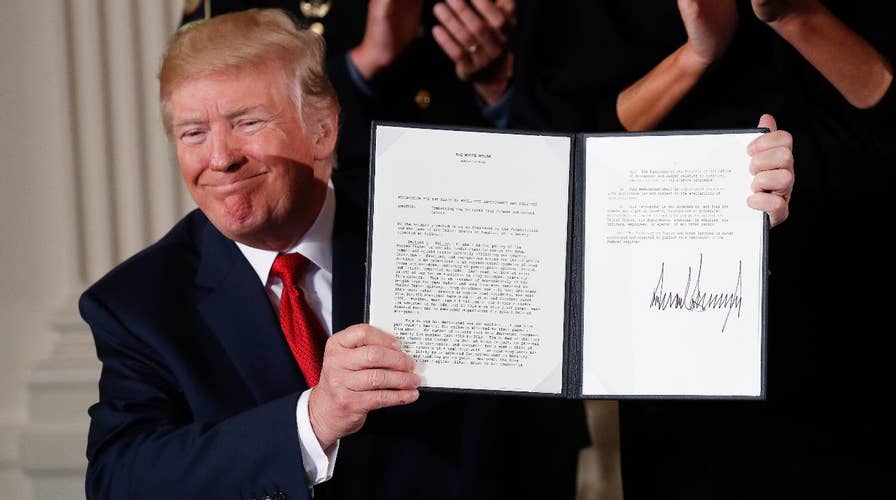Opioid crisis: What will Trump’s ‘public health emergency’ declaration actually do?
President Donald Trump declares the nation’s opioid crisis a ‘public health emergency’ to fight abuse of prescription painkillers, heroin and fentanyl. Here’s what declaring it an emergency will do.
Last year more than 64,000 Americans in every corner of our country were lost to drug overdoses. That’s 142 people each day.
For too long we have not faced this growing crisis head on. And while we’ve lost so many, we must also remember the innocent children born to addicted parents who are exposed to the dangers of this crisis from their first breath. According to a Center for Disease (CDC) report, the number of babies born addicted to opioids has tripled in the U.S. in 15 years.
It won’t be easy, but we can be – and must be – the generation that puts an end to this crisis, and that starts with our politicians in Washington. Take Pennsylvania, for example, where Sen. Pat Toomey has been on the front lines fighting for increased and more responsible funding of programs to combat this epidemic.
In 2015, Toomey wrote about his experience traveling the state upon being elected and seeing a pattern emerge. “From Pittsburgh to Philadelphia and across central Pennsylvania, families were being torn apart by a heroin epidemic,” he wrote. “More Pennsylvanians will die this year from overdoses and misuse of heroin and opioid painkillers than from influenza or homicide.”
In fact, according to the CDC, three of four new heroin users report abusing opioids before using heroin. In order to stop the cycle of tragedy that Toomey heard about, and that too many people have lived firsthand, we must take action.
The approach President Trump outlined in his speech on Thursday that declared the opioid crisis a national public health emergency is holistic and addresses not just the effects of addiction, but also the measures to prevent people from becoming addicted in the first place.
This process starts with educating our kids about the dangers of addiction. The earlier we educate our communities about addiction and the many forms it can take, the more likely we are to prevent people from sliding down that slippery slope.
We must also provide the necessary resources and support to those addicted and those in recovery. Too many relapsed addicts share similar stories of falling back into a cycle of drug abuse by the weight of their past mistakes and inability to re-enter their communities after rehab or incarceration.
Because addiction is a disease, not a moral failing, we must treat it as such.
Until recently, the U.S. Department of Veterans Affairs almost exclusively treated chronic pain with prescription opioids. Because our nation’s veterans suffer from chronic pain at a rate double the national average, it should be no surprise that this treatment method led to their rates of fatal overdoses also be double the national average.
Our nation’s heroes deserve our very best care, and while the VA has taken steps to curtail the over-prescription of addictive opioids, there is still much work to be done. That’s why Secretary of Veteran’s Affairs David Shulkin visited the Coatesville, Pa., Veterans Affairs Medical Center on Friday to host a roundtable to discuss the successes and continued work being done in the VA to combat the opioid epidemic.
This type of engagement and community discussion is what leads to the policies we’re fighting for in Washington. The conversation must be open and ongoing, but it must also be coupled with action.
Every moment we wait to act, the crisis gets worse.
I am proud of the work our president and Congress are doing, and will continue to champion, to combat the opioid epidemic.

